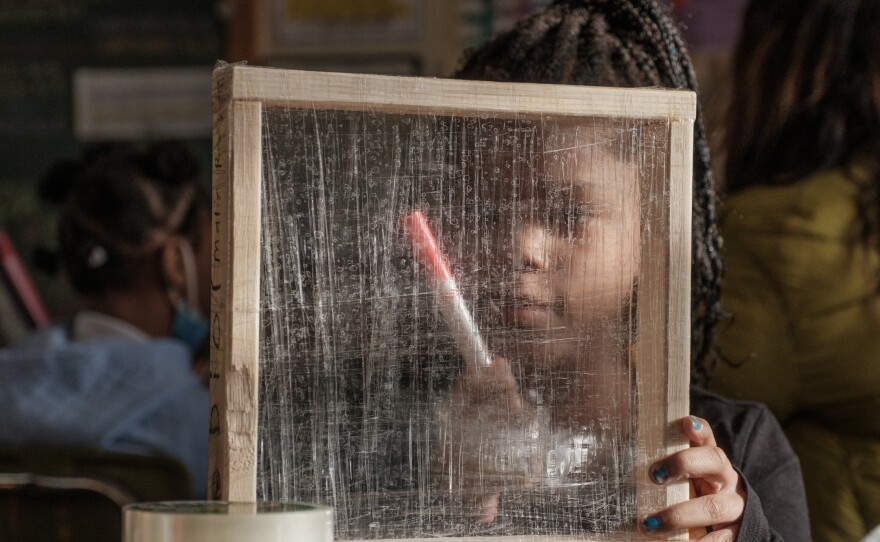Jereme Sykes is a Black pastor and auto parts company manager in Garfield Heights. Aaron Ziff is a white, Orthodox Jewish human resources executive from Beachwood.
Their neighborhoods are only a few miles apart, but the two men often feel as if they're part of different worlds — a symptom, they say, of the spatial and social segregation that's increasingly resulted in Black and Jewish Northeast Ohioans' living in separate cities and neighborhoods.
Yet the two men have become close friends through their participation in the Rekindle Fellowship, which brings professionals from both communities together. Rekindle's mission is to rebuild the historic relationship between Northeast Ohio's Black and Jewish communities that included the fight for Civil Rights in the 1960s and the two groups' experiences of discrimination.
Ziff said he and Sykes connected at their first Rekindle meeting in early 2023.
"I think in our very first meeting, nobody was quite sure what to do. 'Do we just kind of sit here awkwardly?'" Ziff recalled. "But Jereme is a really engaging guy and we caught each other's eye and smiled and struck up a conversation."
Before that interaction, Ziff and Sykes said they didn't have many friends from each other’s communities.
“I think I remember [Ziff] saying he really didn't have a lot of Black friends," Sykes said. "And I can say the same thing. I work for a Jewish company, but I can't really call them my friends because it's business. Now I can honestly say that I have a friend and a brother in Aaron Ziff, and I really appreciate that."
Rekindle's origins
Bringing the two groups together was why Matt Fieldman, who's Jewish, founded Rekindle with professional associate Charmaine Rice, who's Black, in 2019.
“It always bothered me that the Cleveland Jewish community on the East Side rarely, if ever, interacts with the Black community," Fieldman said.

Rice said she was inspired by her mother's recounting of a Shabbat dinner she was invited to attend.
“It was just such a great experience to see what that meant to her, having a place where she felt comfortable asking questions, learning more about a culture that's different than her own," she said.
Rekindle, which has about 110 members, holds meetings at homes and businesses. Moderated discussions have included such topics as antisemitism and racism, the war between Israel and Hamas, and the intergenerational trauma both communities feel.
Members also gather at events celebrating both groups’ cultures.
Rekindle's interfaith holiday celebration in December combined a discussion of the traditions and meaning of Christmas, Chanukah and Kwanza with Jewish and African dances and a service project preparing gift bags for students at Cleveland's East Tech High School. Black and Jewish women joined together to form a healing circle in late January, while Black and Jewish teens gathered for a diversity celebration in early February, featuring African dance and Jewish cooking.
Common ground
Sykes and Ziff said Blacks and Jews have much in common despite the differences between their communities.
Sykes said this includes their history of suffering and oppression.
"You see, 400 years of oppression, slavery, how Blacks were oppressed — we look at the 400-plus years that Jews were oppressed," Sykes said. That parallel history, he said, means the two groups can jointly celebrate "the tenacity and the boldness that we have to pull ourselves up by the bootstraps."
Sykes said Rekindle members' faiths can create another common bond.
"[Ziff] and I really mesh together, because we are servants of God and of humanity as well," he said.
The interactions, Ziff said, helps people from different backgrounds overcome preconceived notions.
"I've learned a lot of different lessons, but one of the more prominent ones for me is about becoming better attuned to other people's lives," Ziff said.
The Israel issue
Sykes said one inaccurate assumption is that the Black community is uniformly against Israel. Many Blacks support Israel, he said — including he himself.
But both men said that does not mean they oppose the Palestinian people.
“Just because I and others support Israel doesn't mean we hate those in Palestine," Sykes said.
"Nor do we," Ziff added.
Sykes continued, "That's the part that we want to make very clear, when you stand with one side, it doesn't mean you hate the other side.”
Words into action
The next step beyond developing friendships is to make a positive difference in the community, Sykes and Ziff said.
The two are now partnering on a satellite location for Cuyahoga Community College’s GED program at Sykes’ church, the New Door Praise & Worship Center in Garfield Heights. The location is scheduled to begin offering classes later this year.
Ziff said creating a satellite program in a neighborhood church helps address obstacles such as a lack of transportation to community college campuses.
“It creates fewer barriers to entry because people are already there, they're already coming to the building, they're already in the neighborhood, and [the church] is trusted,” Ziff said.
Sykes said the classes are just the beginning of what the two communities can accomplish working together.
"This is going to change our city, which I believe is going to change the state and then worldwide,” he said.






